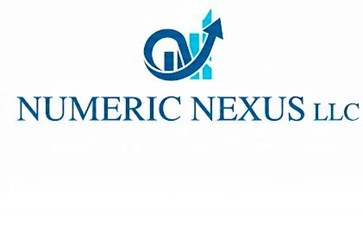Do You Know the Real Value of Your Business for Succession Planning?

Do You Know the Real Value of Your Business for Succession Planning?
Every business owner dreams of building something lasting — a company that not only thrives today but continues to succeed after they step away. Yet many entrepreneurs overlook a key part of that vision: knowing the true value of their business. Whether you’re planning to retire, transfer ownership to family, or sell your company, understanding its worth is essential for effective business succession planning.
If you don’t know your business’s real value, you may be making decisions based on assumptions rather than facts. Here’s why professional valuation is vital and how it shapes your succession strategy.
1. Why Business Valuation Matters for Succession Planning
Succession planning is more than deciding who takes over — it’s about ensuring the long-term health of the company and the financial stability of everyone involved. A proper valuation provides a foundation for:
- Equitable transfers: Fairly distributing ownership among family members or partners.
- Strategic exit planning: Understanding how much the business can fund your retirement.
- Tax efficiency: Structuring sales or transfers to minimise capital gains and estate taxes.
- Investor confidence: Demonstrating financial strength to potential buyers or successors.
- Without an accurate valuation, it’s easy to undervalue or overvalue your company, both of which can harm your legacy.
2. The Difference Between Book Value and True Market Value
Many owners rely on their financial statements or net assets to estimate business worth. However, book value rarely reflects market value.
Market value includes:
- Intangible assets: Brand reputation, customer loyalty, and proprietary technology.
- Earnings potential: Future profits, not just past performance.
- Industry position: Competitive advantages that drive long-term growth.
- Economic conditions: Market demand and interest rate trends.
- Professional business valuation combines these factors using financial modelling, discounted cash flow (DCF) analysis, and industry benchmarking to determine the true market value.
3. How Valuation Supports Family and Partner Transitions
If your succession plan involves passing the business to family or partners, a professional valuation ensures fairness and prevents disputes. It establishes a clear, evidence-based figure for buy-sell agreements or inheritance transfers.
Moreover, knowing the true value helps family members understand the company’s future expectations and the financial responsibilities they’ll inherit.
4. Preparing for External Sale or Merger
If your exit plan includes selling to an outside buyer, valuation is even more crucial. Buyers want transparent financial data and a realistic assessment of the company’s worth. Overpricing can scare them away, while underpricing leaves money on the table.
A valuation-backed strategy also helps you strengthen weak areas — like profitability margins or cash flow — before listing your business for sale.
5. Improving Business Value Over Time
Valuation isn’t a one-time exercise; it’s an ongoing performance indicator. By identifying factors that drive or diminish value, you can focus on:
- Increasing recurring revenue streams.
- Strengthening customer retention.
- Reducing liabilities and operational inefficiencies.
- Enhancing brand reputation and online presence.
- Each improvement not only boosts market value but also prepares your business for a smoother transition when the time comes.
6. Common Mistakes Business Owners Make
Many entrepreneurs delay valuation until they’re close to retirement — but by then, it’s often too late to make meaningful improvements. Others rely on informal estimates from brokers or peers, which lack accuracy and professional credibility.
Regular valuation every few years helps track growth, respond to market changes, and make informed succession decisions.
7. The Role of a CPA in Business Valuation
Certified Public Accountants (CPAs) bring technical and analytical expertise to valuation. They understand both financial statements and market conditions, ensuring objectivity and accuracy. A CPA can also help with tax planning, structuring ownership transitions, and coordinating with legal advisors to create a holistic succession plan.
Conclusion
If you’re planning for the future of your company, start by understanding what it’s truly worth. Neelkanth Accountants LLC, located in Jersey City, NJ, offers expert business valuation, succession planning, tax advisory, and accounting services to help business owners prepare for successful transitions. Their experienced professionals deliver clear, data-driven insights so you can make confident decisions about your company’s legacy.
Searching for Financial & Taxation Services? Let’s make your search simple with professionals!
Take your Financial & Taxation Services to the next level with Sulekha. Boost your online visibility, connect with more clients, and grow effortlessly!
Blogs Related to Financial & Taxation Services

Should You Get a Financial Advisor for Your Small Business?
Should You Get a Financial Advisor for Your Small Business? Running a small business is not just about daily operations—it’s about financial strategy. You may handle bookkeeping, manage payroll, and track sales, but do you have a financial advisor g

How Can Long-Term Care Insurance Protect Your Family from Financial Burden?
How Can Long-Term Care Insurance Protect Your Family from Financial Burden? Planning for the future often focuses on retirement savings, investment growth, or paying off the mortgage. But one crucial area that many families overlook is the risk pose

Should I Use an Accountant for Income Tax Preparation to Save Money?
Should I Use an Accountant for Income Tax Preparation to Save Money? Every year, as tax season approaches, individuals and small business owners face a familiar question: Should I prepare my taxes myself or hire an accountant? While do-it-yourself t

Do You Know the Real Value of Your Business for Succession Planning?
Do You Know the Real Value of Your Business for Succession Planning? Every business owner dreams of building something lasting — a company that not only thrives today but continues to succeed after they step away. Yet many entrepreneurs overlook a k

How Much Should You Rely on Expert Financial Forecasts?
How Much Should You Rely on Expert Financial Forecasts?

How to Excel at Financial Statement Analysis: What Do Employers Look For?
How to Excel at Financial Statement Analysis: What Do Employers Look For? In today's competitive job market, financial statement analysis has become one of the most sought-after skills across industries. Whether you're pursuing a career in finance,




